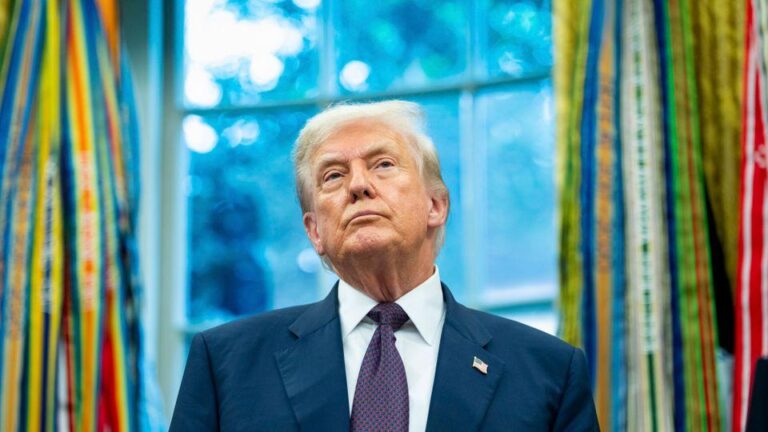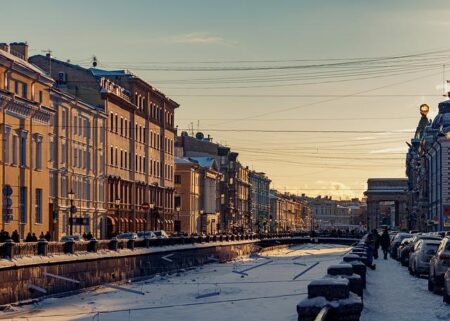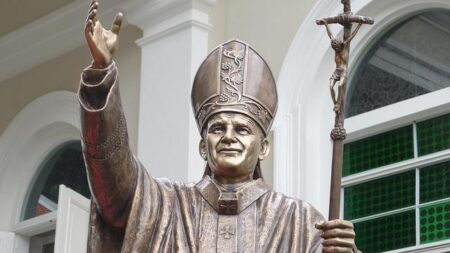Former President Donald Trump expressed frustration after initially believing he had made progress in facilitating dialogue between Russia and Ukraine, only to face a setback when Russian President Vladimir Putin appeared to back away from the potential negotiations. The developments have added a new layer of complexity to an already tense geopolitical situation, highlighting the challenges in brokering peace amid ongoing conflict. This report delves into the latest twists in the Russia-Ukraine talks and the reactions from key players involved.
Trump Expresses Frustration Over Perceived Progress in Russia Ukraine Negotiations
Former President Donald Trump voiced his disappointment after initial indications of progress in the Russia-Ukraine peace discussions abruptly soured. Trump had claimed to have brokered meaningful dialogue, suggesting that his interventions were opening doors for potential de-escalation. However, reports from the Kremlin indicated a sudden shift, with Russian President Vladimir Putin appearing reluctant to move forward on key issues, effectively stalling the negotiation momentum.
Analysts suggest several factors contributed to the impasse, including unresolved territorial disputes and conflicting demands over security guarantees. Trump’s attempt to mediate was seen as unorthodox, drawing criticism and skepticism from both Western officials and diplomatic experts. The following highlights key negotiation dynamics impacting the current standstill:
- Ukrainian sovereignty concerns: Ensuring territorial integrity remains non-negotiable for Kyiv.
- Sanctions relief: Moscow demands easing of economic penalties as part of any deal.
- Security assurances: Both sides seek guarantees against future hostilities.
- International mediation: Limited involvement from traditional diplomatic channels, increasing reliance on informal backchannels.
| Aspect | Trump’s Position | Putin’s Reaction |
|---|---|---|
| Territorial Concessions | Hoped for flexibility | Balked at major compromises |
| Sanctions | Advocated easing | Conditioned on results |
| Negotiation Structure | Favored informal talks | Preferred official channels but remained cautious |
Putin’s Reluctance Undermines Diplomatic Efforts Despite Initial Optimism
Diplomatic channels showed signs of promise earlier this month as initial talks between U.S. representatives and Russian officials sparked cautious hope. However, recent developments have revealed a sharp setback as President Putin expressed strong reservations, effectively stalling progress. Despite former President Trump’s public optimism and claims of significant breakthroughs, Putin’s hesitance has cast a shadow over the negotiations, signaling entrenched geopolitical complexities that defy easy resolution.
Analysts point to several critical factors behind this reluctance:
- Security concerns: Russia remains firm on demands related to NATO expansion and military positioning.
- Domestic political pressures: Putin faces internal expectations to maintain a strong stance, complicating diplomatic flexibility.
- International image: Any perceived concession could be interpreted as weakness on the world stage.
These factors create a challenging environment for negotiators, as the fragile balance between perceived strength and the push for peace continues to tip unpredictably.
| Key Issues | Russia’s Position | U.S. Response |
|---|---|---|
| NATO Expansion | Non-negotiable opposition | Calls for dialogue |
| Sanctions Relief | Conditional and limited | Demand for verifiable steps |
| Ceasefire Terms | Strict compliance required | Proposes phased approach |
Experts Recommend Renewed Multilateral Approaches to Break Stalemate
In light of recent setbacks in the Russia-Ukraine negotiations, leading diplomats and policy experts are urging a pivot back to robust, multilateral diplomacy. They argue that unilateral efforts have repeatedly hit impasses, underscoring the urgent need for a coordinated approach involving key international actors such as the United Nations, the European Union, and the Organization for Security and Co-operation in Europe (OSCE). Experts emphasize that sustainable peace demands inclusive dialogue, transparency, and collective pressure to encourage concessions from all parties.
The proposed strategy includes:
- Revitalizing ceasefire monitoring through joint peacekeeping initiatives
- Facilitating open channels of communication between Moscow and Kyiv with neutral third-party mediation
- Leveraging economic and diplomatic incentives aligned across Western and non-Western stakeholders
| Key Actors | Role | Potential Contribution |
|---|---|---|
| United Nations | Mediator and peacekeeper | Deploy impartial peace monitoring teams |
| European Union | Diplomatic facilitator | Coordinate sanctions and humanitarian aid |
| OSCE | Conflict observer | Ensure compliance with ceasefire commitments |
| Neutral States | Mediator and supporter | Provide neutral ground for talks and back-channel diplomacy |
To Wrap It Up
As diplomatic efforts continue to face significant hurdles, the recent setback underscores the complexities surrounding the Russia-Ukraine conflict. While initial optimism from the Trump administration suggested possible progress, Putin’s reluctance to advance negotiations highlights the persistent challenges ahead. Observers will be closely monitoring how both sides respond in the coming days, as the international community seeks a resolution to the escalating tensions.




